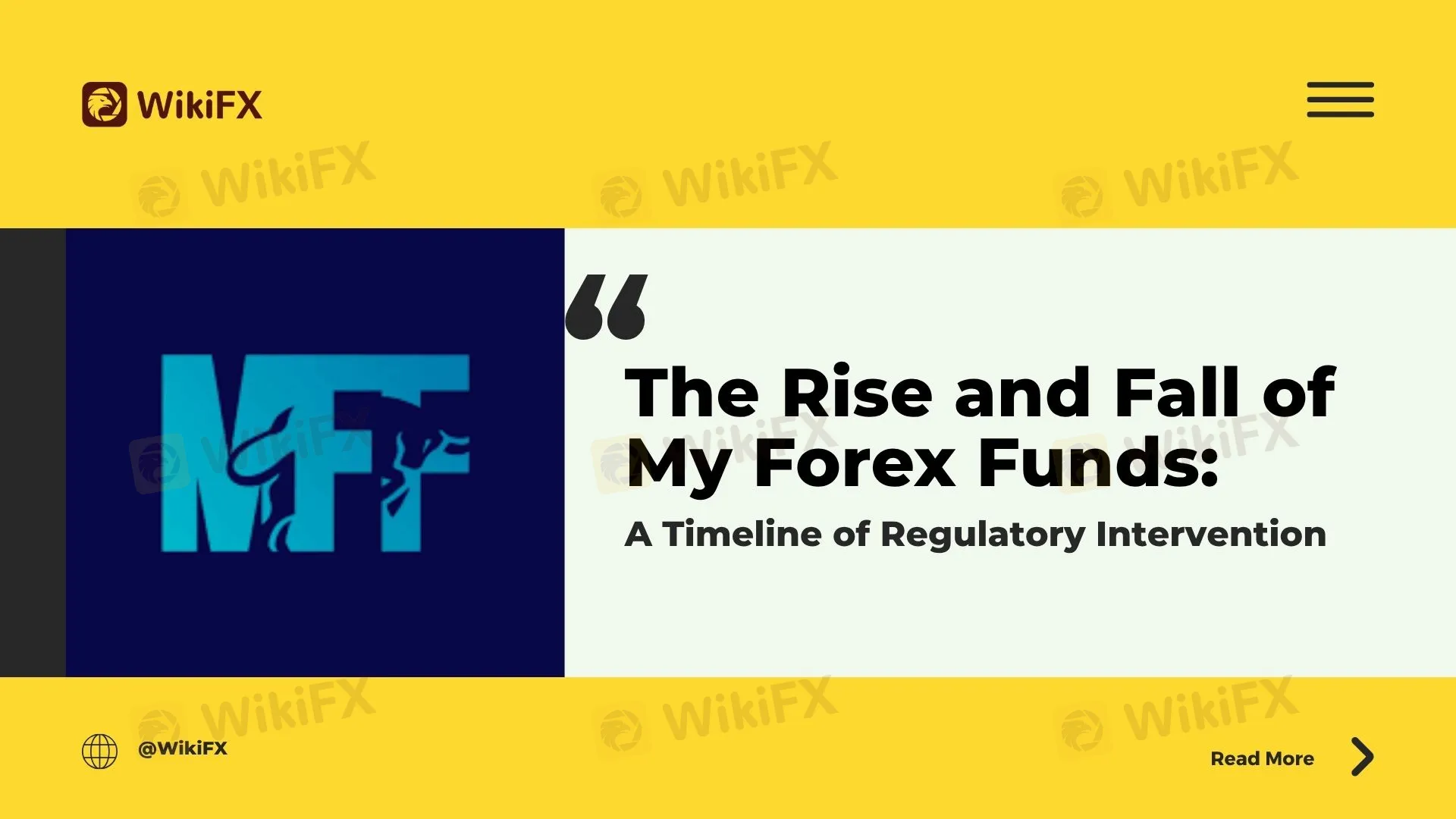简体中文
繁體中文
English
Pусский
日本語
ภาษาไทย
Tiếng Việt
Bahasa Indonesia
Español
हिन्दी
Filippiiniläinen
Français
Deutsch
Português
Türkçe
한국어
العربية
The Rise and Fall of My Forex Funds: A Timeline of Regulatory Intervention
Abstract:Discover the full story behind CFTC’s action against My Forex Funds and how it reshaped the proprietary trading landscape.

My Forex Funds once stood as one of the most recognizable names in the proprietary trading space. However, in recent months, the phrase “CFTC My Forex Funds” has surged in visibility across trader forums and search engines, following a chain of regulatory actions that dramatically shifted the firms trajectory.
Introduction
Founded in 2020 by Murtuza Kazmi, My Forex Funds (MFF) positioned itself as a proprietary trading firm offering funded accounts to aspiring traders. The company promised generous capital access, with profit-sharing models and low entry thresholds. At its peak, MFF had over 135,000 clients and collected more than $300 million in fees, rapidly becoming a key player in the retail trading landscape.
CFTC My Forex Funds: The Turning Point
The major turning point came in late August 2023, when the U.S. Commodity Futures Trading Commission (CFTC) filed a complaint against My Forex Funds and its CEO. The CFTC alleged the firm had defrauded retail clients by acting as the undisclosed counterparty to trades and manipulating trade outcomes through hidden software and account terminations. A U.S. district court responded by issuing a freeze on company assets and imposing a temporary restraining order.
The case, now widely known under the phrase “CFTC My Forex Funds,” prompted intense scrutiny. While the CFTC sought permanent bans and restitution, the regulatory action effectively shut down My Forex Funds overnight, leaving traders locked out of their accounts and funds.
Legal Fallout and Accusations of Misconduct
What began as a straightforward enforcement case quickly escalated. In 2024, the legal proceedings took an unexpected turn when it emerged that the CFTC may have withheld key information in its initial filings. A special master appointed by the court found that the agency had failed to disclose an email from the Ontario Securities Commission indicating a disputed fund transfer was, in fact, a legitimate tax payment.
The revelation sparked backlash. The defense team for My Forex Funds filed a motion for sanctions, alleging misconduct. In 2025, the presiding judge ruled that the CFTC had acted “willfully and in bad faith,” ultimately ordering the agency to pay over $3.1 million in legal fees to the company .
What Happened to My Forex Funds After the CFTC Action?
Following the asset freeze and regulatory proceedings, My Forex Funds ceased operations. The firms website was taken down, and traders were left with little clarity on recovery timelines. Although partial unfreezing of some assets occurred, most client activities remained suspended as the litigation continued.
By mid-2025, the damage had already been done. Public trust eroded, and even industry awards won by the firm in previous years lost their luster. The incident also brought wider attention to the structure of prop trading firms and the need for transparent oversight.
Why the Phrase “CFTC My Forex Funds” Still Matters
The keyword “CFTC My Forex Funds” continues to trend due to ongoing interest in the cases outcome. Many traders still search for updates on asset recovery, regulatory rulings, and potential refunds. In addition, the case has become a reference point for discussions about the responsibilities of both prop firms and regulators in ensuring fairness and clarity in financial markets.
Its also a cautionary tale for traders evaluating new platforms. The downfall of My Forex Funds reminds users to verify registration status, understand fee structures, and carefully read trading agreements — especially when dealing with firms promising high returns with little capital risk.
Final Thoughts
The saga surrounding CFTC My Forex Funds is far from over. While legal proceedings have made headlines, the long-term implications for the proprietary trading industry remain uncertain.
Disclaimer:
The views in this article only represent the author's personal views, and do not constitute investment advice on this platform. This platform does not guarantee the accuracy, completeness and timeliness of the information in the article, and will not be liable for any loss caused by the use of or reliance on the information in the article.
WikiFX Broker
Latest News
Top Wall Street analysts recommend these dividend stocks for regular income
Stock futures rise as U.S.-EU trade deal kicks off a hectic week for markets: Live updates
Thailand-Cambodia War Pressures Thai Baht in Forex Market
Treasury yields tick lower as investors look ahead to Fed's interest rate decision
European stocks set to rise after the U.S. and EU strike trade agreement
Samsung Electronics signs $16.5 billion chip-supply contract; shares rise
Does XS.com Hold Leading Forex Regulatory Licenses?
Elon Musk confirms Tesla has signed a $16.5 billion chip contract with Samsung Electronics
Chile Bumps Up Copper Price Forecast and Flags Lagging Collahuasi Output
A breakthrough and a burden? What the U.S.-EU trade deal means for the auto sector
Currency Calculator


